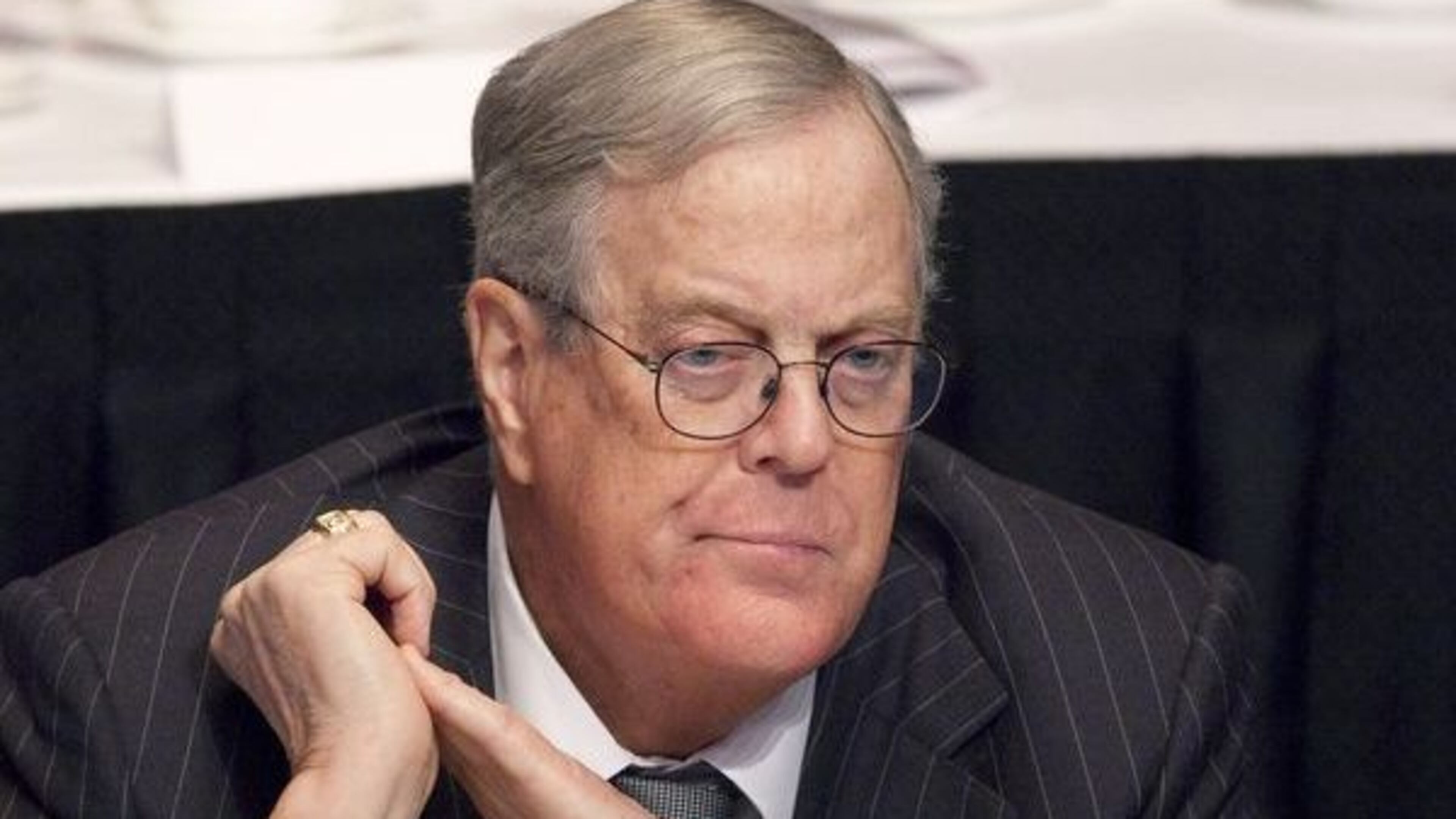Show me the (sources of the) money

The reaction from the left to news the political network backed by -- bogeyman alert! -- the Koch brothers will spend almost $900 million on the 2016 elections has been as predictable as it is furious -- and futile. Speech is, in many ways, something our left-wing friends prefer limiting rather than hearing. (Unless it's speech from the Obama campaign, which in 2012 spent more by itself than the Kochs and their friends plan to spend on presidential and congressional politics.)
One of the complaints about the Kochs' plan, other than the particular names involved, is that their network doesn't have to disclose its donors. For that, you can thank the misguided McCain-Feingold reform, which didn't limit or reform campaign finances so much as squeeze the balloon. Money that used to flow with relative transparency through candidate and party organizations now seeks a new outlet. And that new outlet doesn't require as much sunshine.
Answering the requisite what-now question with a strong dose of reality is National Journal's Ron Fournier :
"What could be a more modern, tech-fueled reform than requiring political candidates and groups to simultaneously deposit and disclose? Open-government groups could develop apps enabling voters to track donations to certain members of Congress or from specific interest groups, with customized alerts sent to their mobile devices.
"We can't stop a senator from being in the pocket of Big Tobacco or Big Labor, beholden to a Koch or a Soros. But we could see it -- instantly. The fierce urgency of accountability."
I think that's right. Fournier also mentions an "amendment" to his idea offered by NBC's Chuck Todd:
The problem with that idea is that it simply encourages more gamesmanship by campaigns and parties to slice up the donations so that they fall under that threshold. I don't disagree with the concept of prominent, public disclosure of the big donors, but I think there's probably a better answer. (Maybe PSAs about each candidate's donors, funded by the money taxpayers send to presidential election campaigns via their 1040 tax forms?)
The likelihood of a regime of campaign-finance restrictions more effective than McCain-Feingold is, in my view, low. Better to make the rules about transparency -- including about personal finances, particularly at the state level here in Georgia -- and work to make those effective. And ultimately, whether any rules of any type can work depends on the interest or apathy of the voting public.


